Projects
Filter By
Filter By
- Community and land use planning
- Decision support systems
- Economic and demographic analysis
- Environmental due diligence
- Environmental monitoring
- Expert testimony and litigation support
- Food system planning
- Geospatial analysis
- Grant writing
- Green infrastructure
- Outreach and engagement
- Redevelopment
- Remediation and risk assessment
- Renewable energy analysis
- Science-based planning
- Stream and wetland restoration
- Trail planning and construction

Advanced Energy Manufacturing Tax Credits in West Virginia Coalfields
Policy makers are taking steps to invest in coal communities as the country enacts new policies to address climate change. In this analysis, we focused on the Advanced Energy Manufacturing, or 48C, tax credit. According to our analysis, 48C tax credits would result in significant benefits to West Virginia, including thousands of jobs in manufacturing and other sectors.

All Aboard Grafton Brownfields Assessment and Redevelopment
We worked with the Northern Brownfields Assistance Center to help attract new business, lodging, and recreational opportunities to riverfront main streets in Grafton, West Virginia and other rural communities by redeveloping industrial legacy sites.
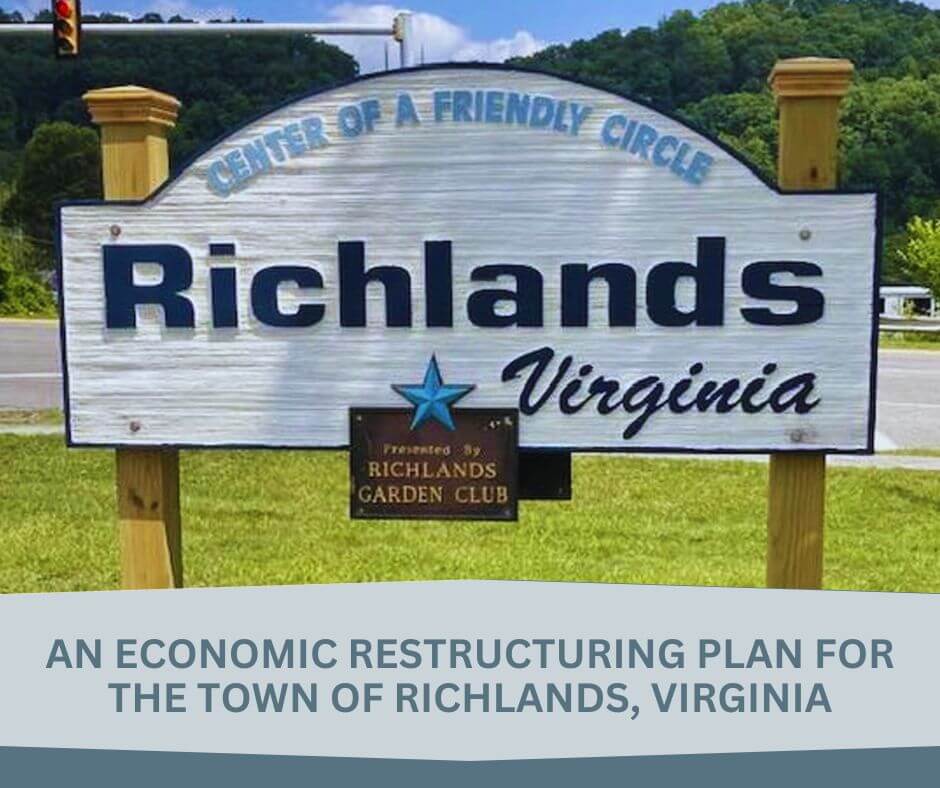
An Economic Restructuring Plan for the Town of Richlands, Virginia
This Economic Restructuring Plan evaluates the current economic climate in Richlands, explores local market data on the surrounding area, and outlines strategies that will help Richlands and its downtown create a stronger business environment, target new investment, and position itself as a destination within the greater region.
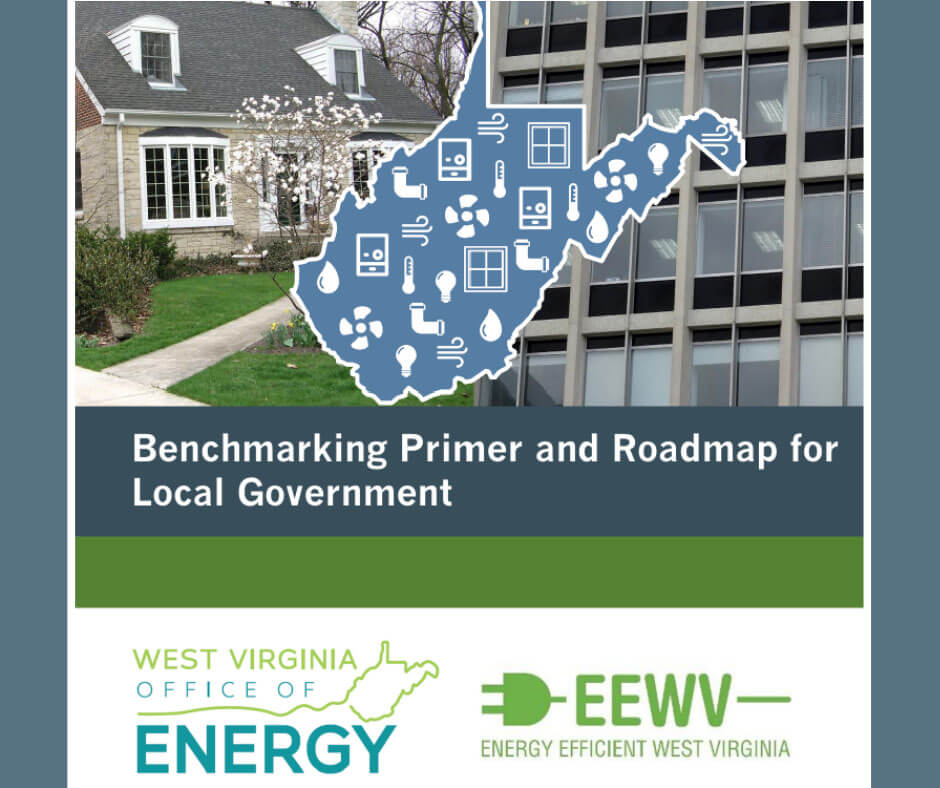
Benchmarking Primer and Roadmap for Local Government
Benchmarking is the process of measuring and then comparing a building’s energy performance against itself, modeled buildings, or comparable buildings, thereby allowing building owners to identify savings. In this report, we introduce local governments to benchmarking concepts, tools, and approaches to manage expenses while detailing the local economic benefits and job creation potential of energy efficiency programs.
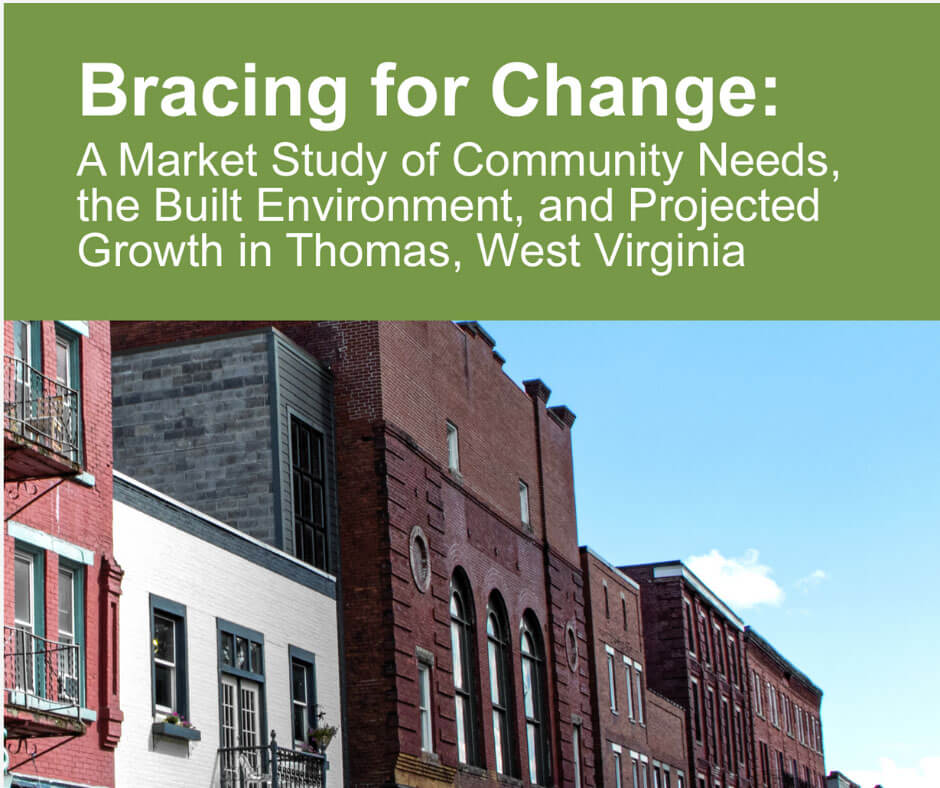
Bracing for Change: A Market Study of Community Needs, the Built Environment, and Projected Growth in Thomas, West Virginia
We explored several areas of community infrastructure that will be critical to supporting growth in the greater Thomas area and examined how brownfield redevelopment can help meet community needs. The report includes a market assessment of housing and business needs, a built environment assessment, and recommendations for the City and its partners to take to accommodate future growth while making the area an even better place to live, work, and play.

Central Appalachian Mine Reforestation Assessment (CAMRA) Tool
With our partners, we developed the Central Appalachian Mine Reforestation Assessment tool, which uses satellite imagery and a new mathematical model to monitor and characterize the state of reclamation and the growth of trees and other vegetation on surface coal mines in Central Appalachia from 1984 to the present.
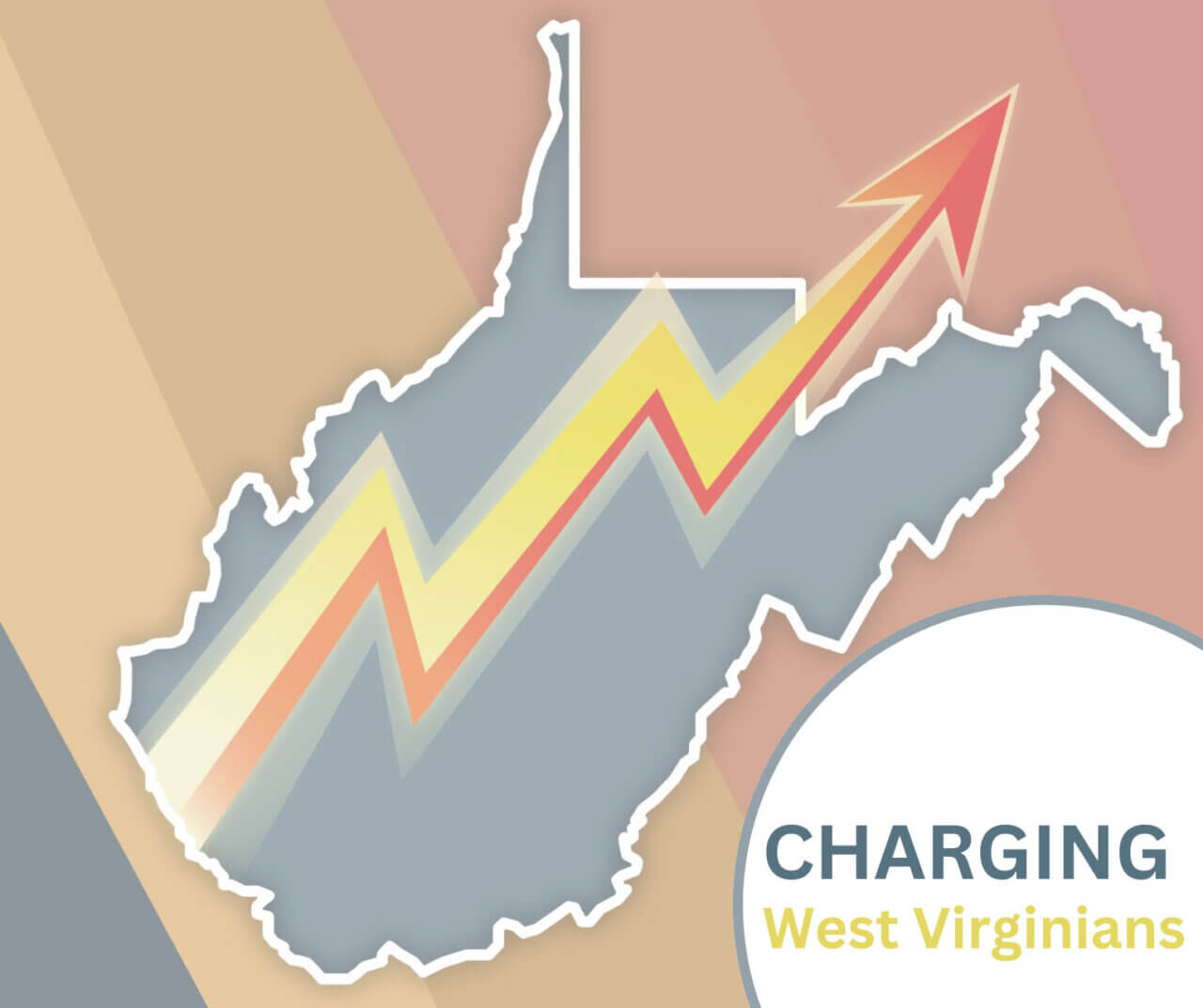
Charging West Virginians: How Utility and Public Service Commission Actions Continue to Increase Electricity Bills
West Virginia’s residential electricity rates more than doubled between 2005 and 2022, outpacing the increases in every other state. This report explains why: (1) regulators and utilities doubling down on aging coal-fired power plants, (2) record-high cost recovery cases filed by utilities, (3) non-competitive resource procurement practices employed by utilities, and (4) a lack of energy efficiency programs available for consumers.

City of Ravenswood Comprehensive Plan Update
We updated Ravenswood’s comprehensive plan to formulate a vision that prioritizes residential development, downtown revitalization, and quality of life improvements that celebrate Ravenswood’s river-town charm. Our action plan will help the city benefit from new developments at Ravenswood’s doorstep that bring housing, land use, and infrastructure challenges to the forefront.

City of Ravenswood Zoning Code Diagnosis
In anticipation of growth in Ravenswood, West Virginia, we assessed the City’s 60-year-old zoning code to advance the growth goals of its recently updated comprehensive plan. The diagnosis report is an important first step to a streamlined and user-friendly code for developers, property owners, and residents.
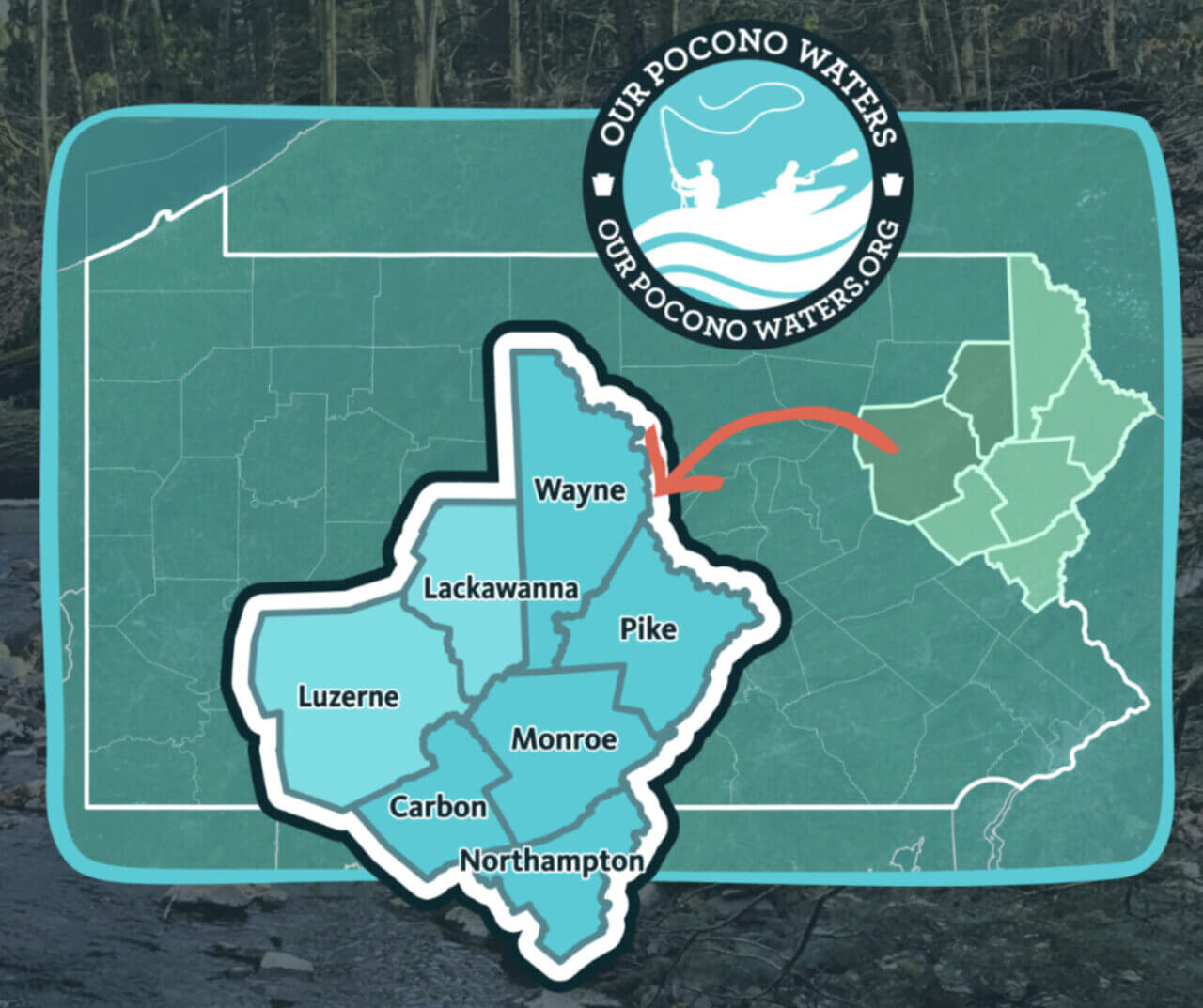
Economic Effects of Special Protection Stream Designations
This story map complements the study, “Economic Effects of Special Protection Stream Designations in the Pocono Mountains Region,” which quantifies the economic benefits of Exceptional Value and High Quality stream designations in the Poconos region of Pennsylvania.

Elevating the Outdoors
We produced three linked reports that comprise a marketing plan to retain and recruit outdoor recreation and lifestyle manufacturing businesses and employees to Western Maryland: a Manufacturing Business Attraction Analysis, a Tourism Business Expansion Analysis, and a Regional Strategic Plan for Business Attraction. The “Make it. In the Mountains.” marketing plan is now being implemented
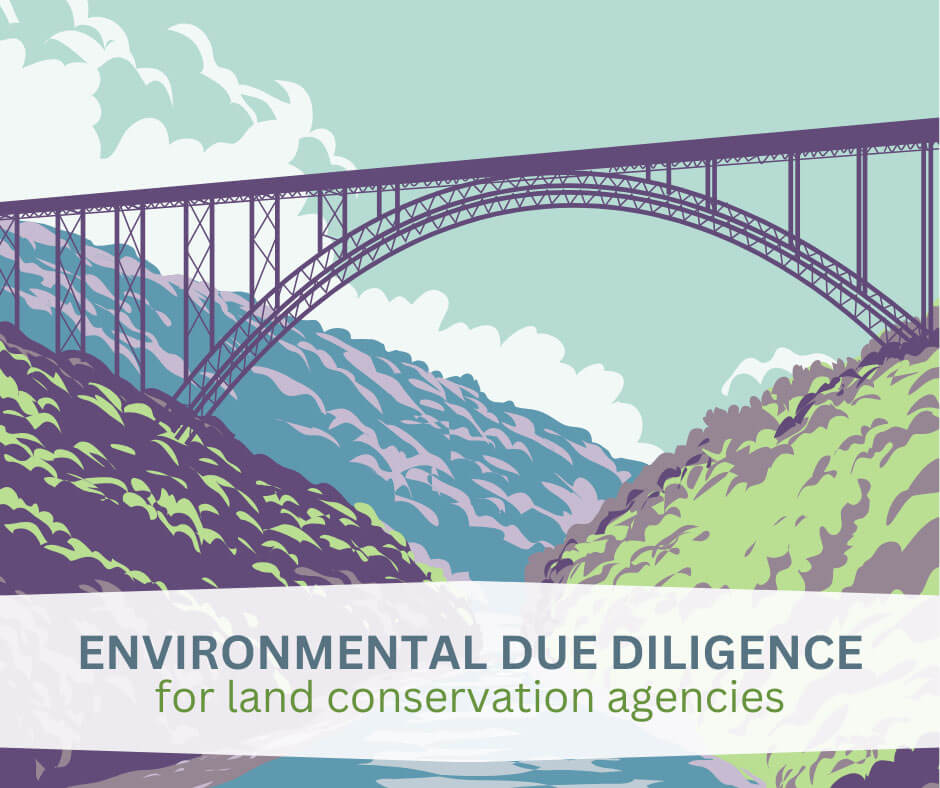
Environmental Due Diligence for Land Conservation Agencies
On behalf of the National Park Service, The Nature Conservancy, West Virginia Land Trust, The Conservation Fund, and other entities, our team performs Phase I Environmental Site Assessments (ESAs) to ensure the appropriate due diligence steps are conducted and that landowners are protected from environmental liabilities during real property transactions.

Expert Testimony Regarding Duke Energy’s Carbon Plan and Integrated Resource Plan in North Carolina
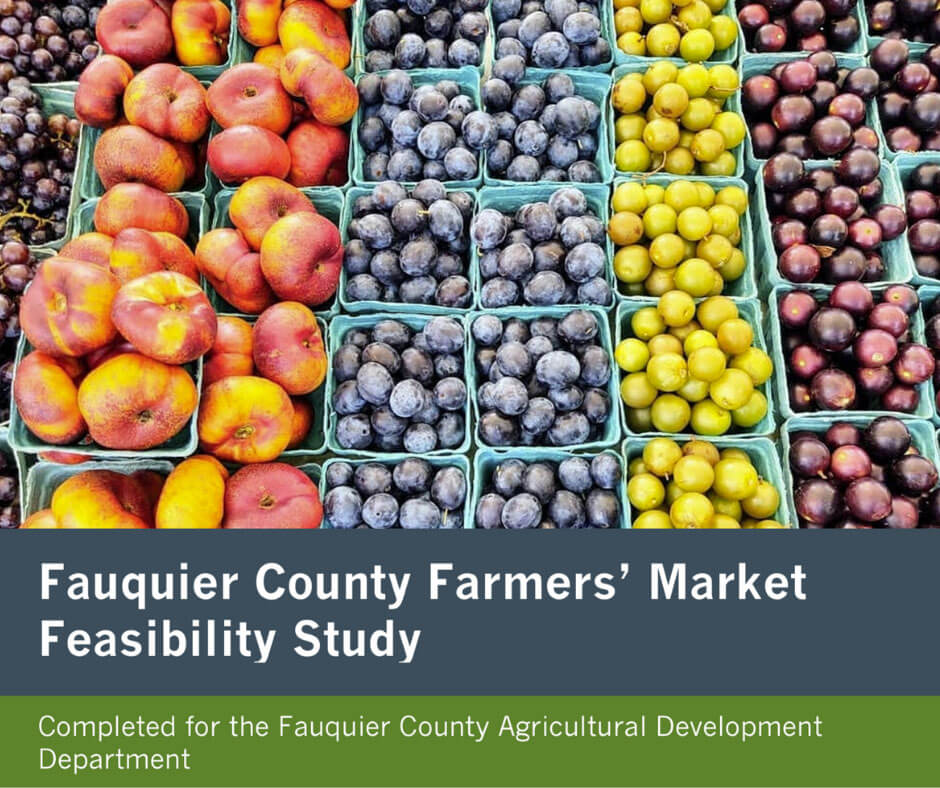
Fauquier County Farmers’ Market Feasibility Study
Our feasibility study explored the viability of three farmers’ market enhancements in Fauquier County, Virginia: new traditional farmers’ markets; a year-round, in-person farmers’ market; and an online farmers’ market sales platform. We conducted market research into the dynamics of farmers’ markets via surveys of local producers and county residents and interviews with key stakeholders.

Fish Habitat Decision Support Tool
This tool provides resource managers and the public with access to the extensive spatial data and results produced from multiple fish habitat assessments. Three main analytical tools—visualization, ranking, and futuring — are combined with intuitive basemaps and mapping features to allow users to explore the details of the fish habitat assessments and perform subsequent analyses.
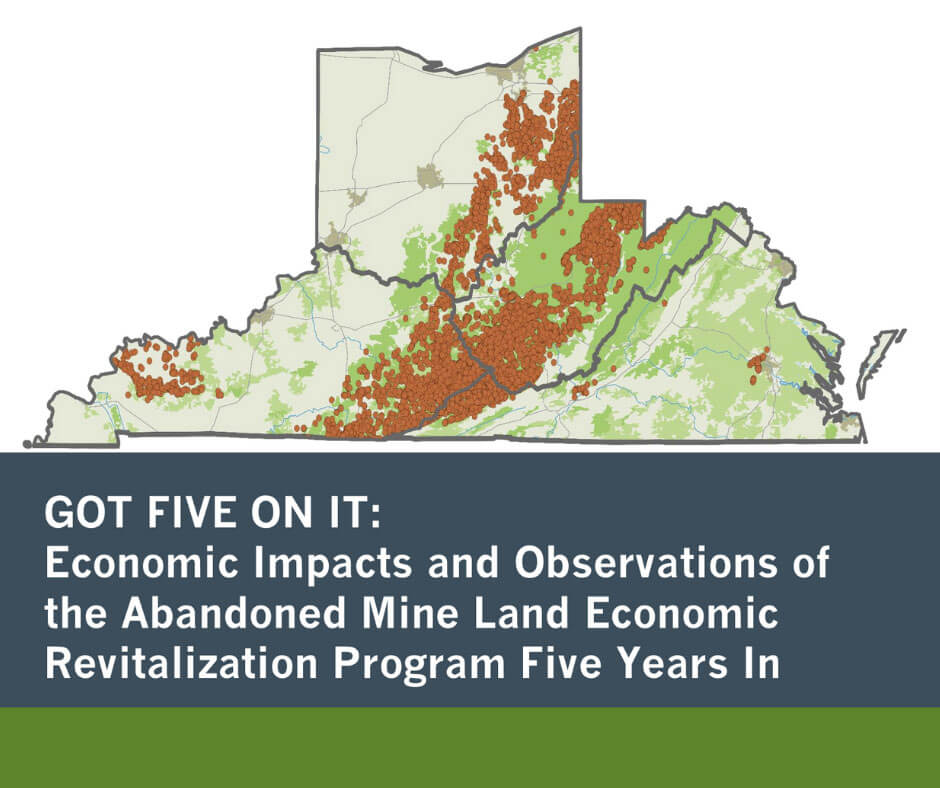
Got Five On It: Economic Impacts and Observations of the Abandoned Mine Land Economic Revitalization Program Five Years In
The Abandoned Mine Land Economic Revitalization (AMLER) Program was established in 2016 to return abandoned mine lands to productive use through economic and community development. In this report, we utilize economic impact models to estimate the economic benefits of AMLER projects.
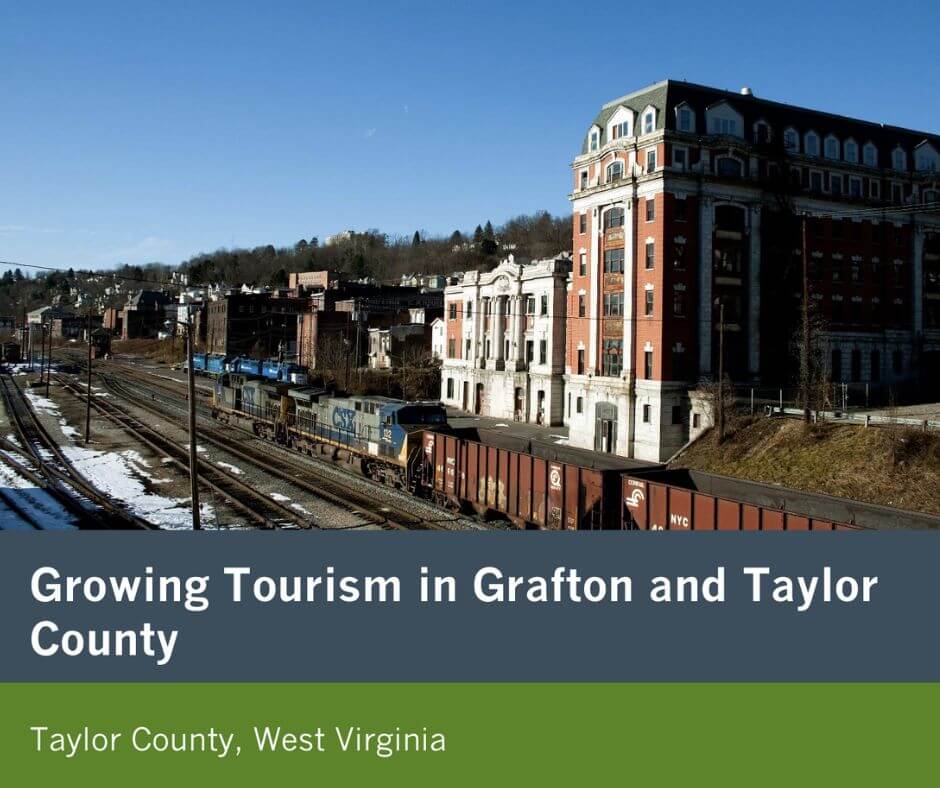
Grafton Tourism Assessment
We explored opportunities for expanding recreation-based tourism in the Grafton area. Our report includes a market analysis for recreation-based tourism, an assessment of Grafton’s existing tourism infrastructure, recommendations to help Grafton and Taylor County attract more visitors to its downtown, and an inventory and prioritization of brownfield properties for redevelopment.

Grant Writing
We have helped counties, towns, and nonprofits secure a wide range of grant funding, including grants from the U.S. Environmental Protection Agency (brownfield), the U.S. Department of Agriculture, the Appalachian Regional Commission (POWER and AMLER), and several private foundations. We also conduct comprehensive prospect research to identify grant programs that align best with a given project to ensure a high chance of success.
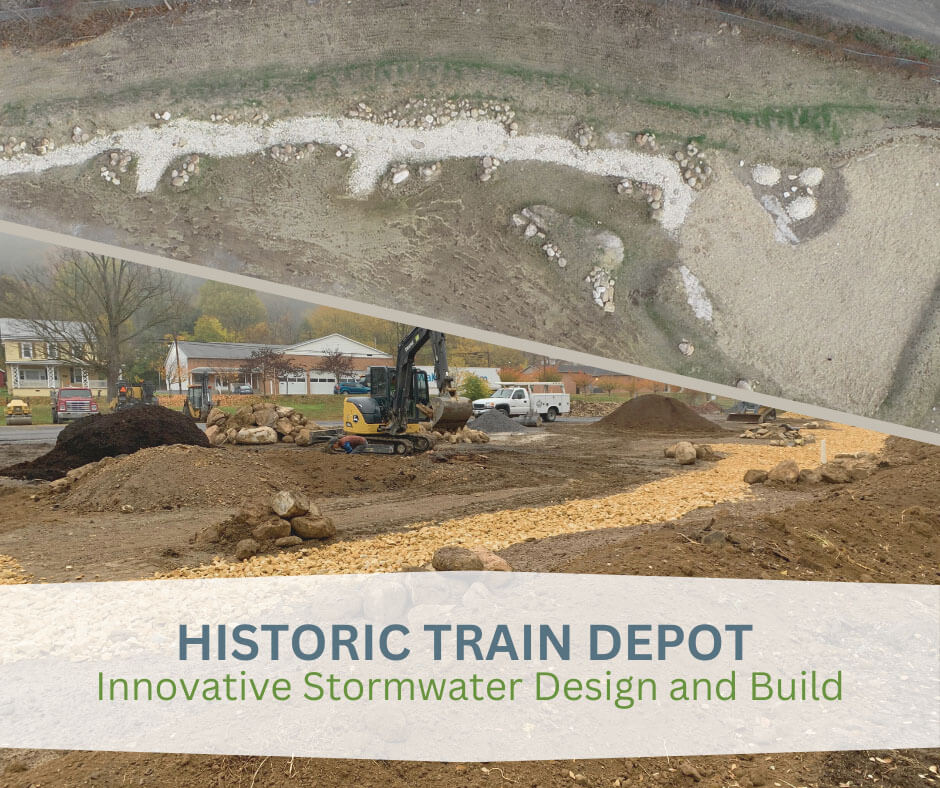
Historic Train Depot Innovative Stormwater Design and Build
We designed an innovative stormwater feature at the Berkeley Springs Train Depot, which combined Chesapeake Bay best management practices with hügelkultur berms, a centuries-old agricultural method that facilitates the bioremediation process using mycelium.
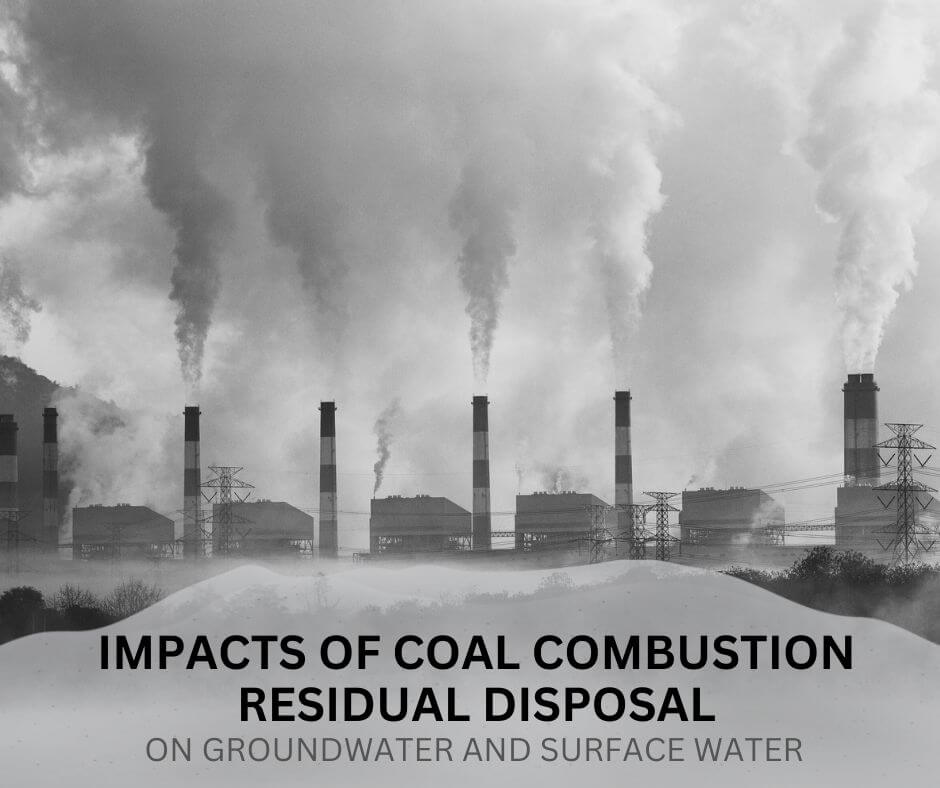
Impacts of Coal Combustion Residual Disposal on Groundwater and Surface Water
We have assessed numerous coal combustion residual (CCR) disposal sites across the United States to document impacts on groundwater and surface water from landfills and surface impoundments. Our analyses have also reviewed implementation of the federal 2015 rule as well as the need for an updated rule to address legacy units. This updated rule was finalized in 2024.

Indoor Air Quality Monitoring

Industrial Demolition Impacts to Residential Property
We implemented a sampling and analysis program to evaluate environmental conditions on private properties impacted by deposition of airborne particulates from the explosive demolition of nearby industrial infrastructure.

Innovative Economic Development
Working with strategic partners across the region, we revitalize local economies by restoring degraded lands, diversifying economies, engaging communities, and developing renewable energy solutions.
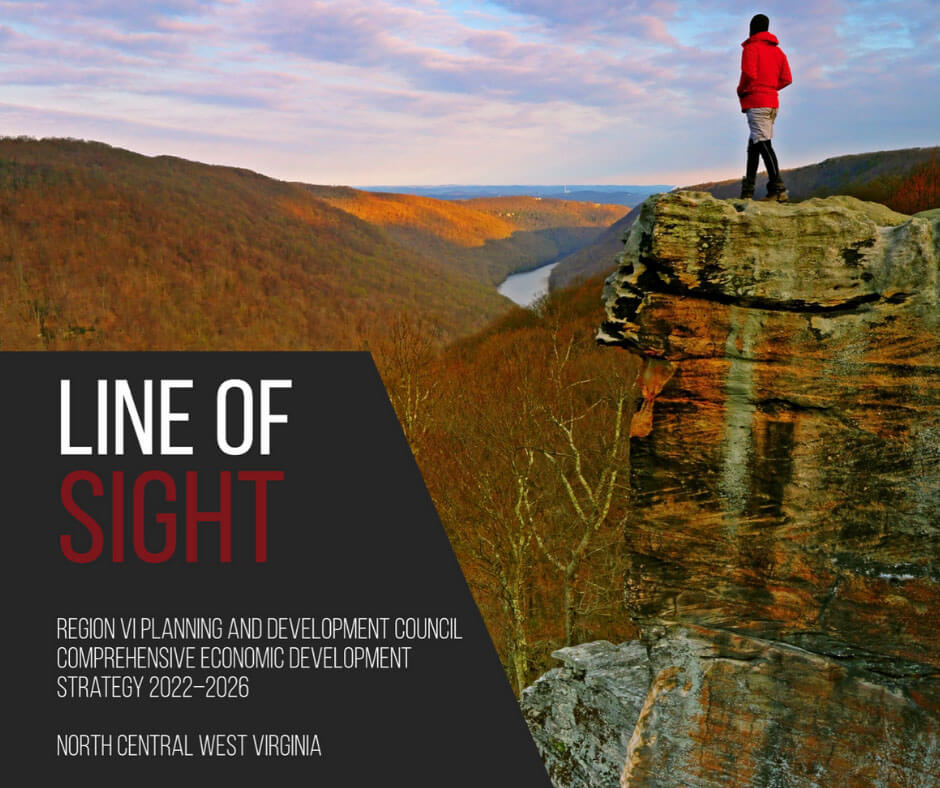
Line of Sight: Region VI Planning and Development Council Comprehensive Economic Development Strategy 2022-2026
For a six-county region in north-central West Virginia, we developed a Comprehensive Economic Development Strategy (CEDS), a five-year economic plan to guide the growth of jobs, commerce, and community development. The CEDS is a strategy-driven plan guided by a diverse workgroup of local representatives and was established through local input, statistical analysis, and integration of economic development principles and practices.

Local Economic Impact Assessments
For a variety of sectors and clients, we perform local economic impact assessments to quantify the increased output, employment, and labor income attributable to economic development projects or policies.
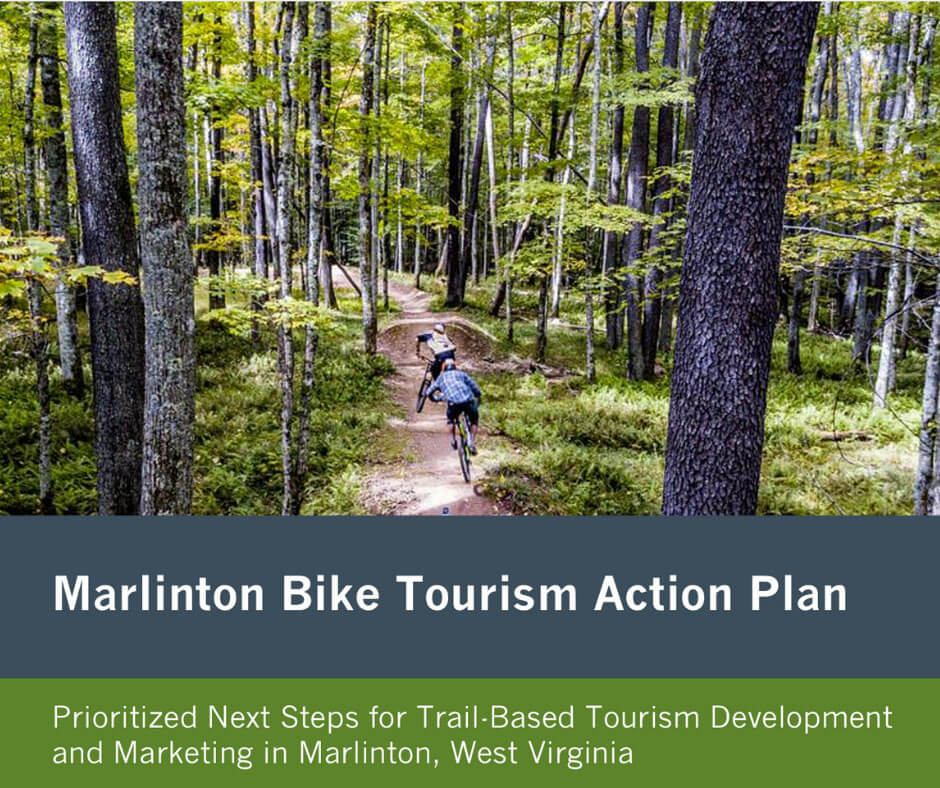
Marlinton Bike Tourism Action Plan
To help the Town of Marlinton, West Virginia enhance its standing as a gateway community to the Monongahela National Forest, our trail planning team created an action plan focusing on tourism infrastructure needs and marketing. The plan prepares the community for increased visitation and to contribute to the greater regional effort of achieving gold-level status for the Snowshoe Highlands Area Ride Center.

National to Neighborhoods: Catalyzing Opportunities for Coal-Impacted Communities
This report outlines innovative projects that would transform abandoned coal mine lands in West Virginia and nearby states into sites of sustainable community and economic development. As the technical advisor to the Reclaiming Appalachia Coalition, Downstream Strategies helped author this report.
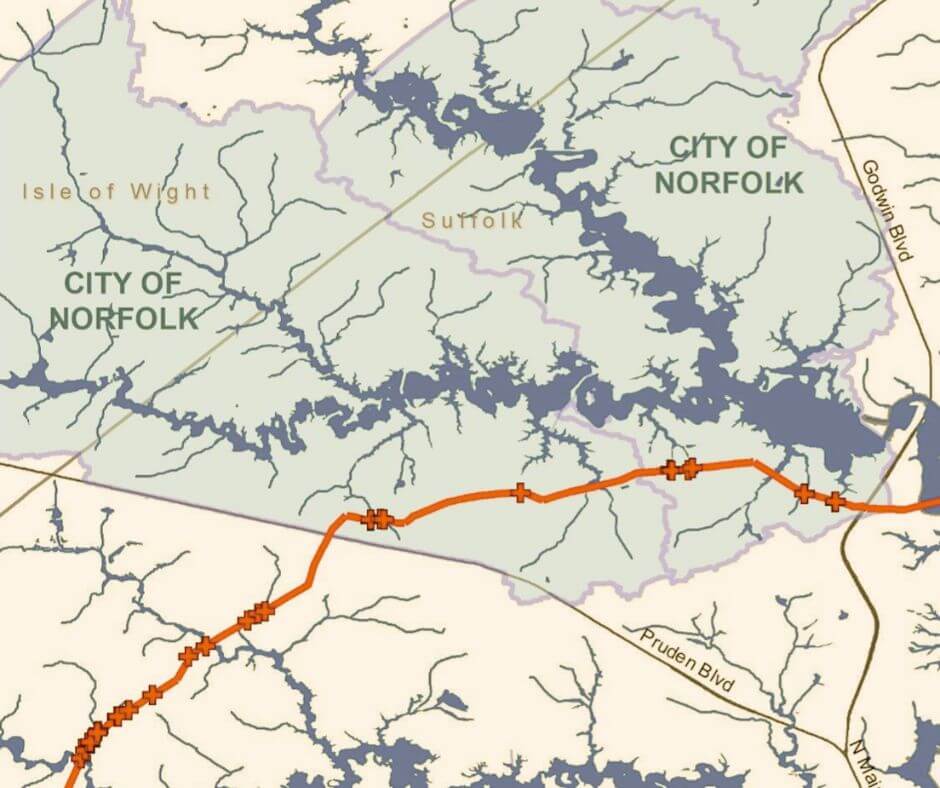
Natural Gas Pipeline Impacts on Groundwater and Surface Water
We conducted a series of analyses of the groundwater and surface water impacts of natural gas pipelines in Ohio, Pennsylvania, Virginia, and West Virginia, with a primary focus on erosion and sedimentation.
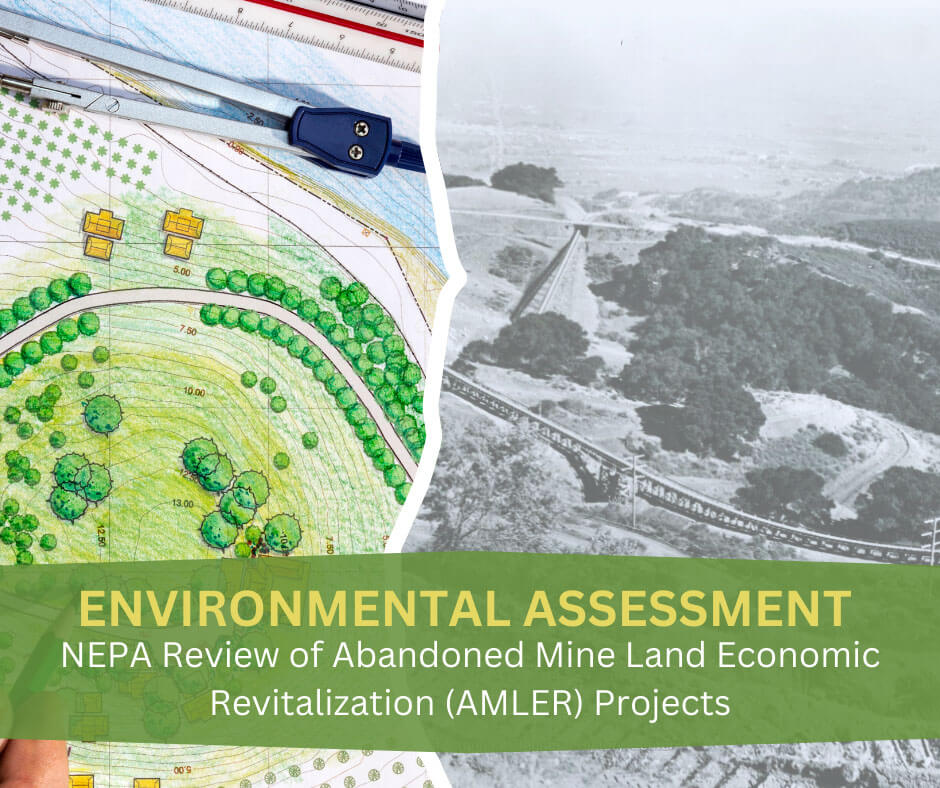
NEPA Environmental Assessments
Many federal agencies and grant-issuing organizations require Environmental Assessments (EAs) for potential projects prior to the release of funds. We have completed EAs for a wide range of clients, including recipients of Abandoned Mine Land Economic Revitalization (AMLER) grants.

Oglebay Resort and Park Trail Concept Plan

Perrine DuPont Settlement
Downstream Strategies helped remediate West Virginia properties impacted by heavy metal contamination during implementation of the Perrine DuPont settlement. Project tasks included providing technical recommendations for the design and oversight of a soil and interior dust sampling program, presenting at public meetings, and providing expert testimony in a courtroom setting.
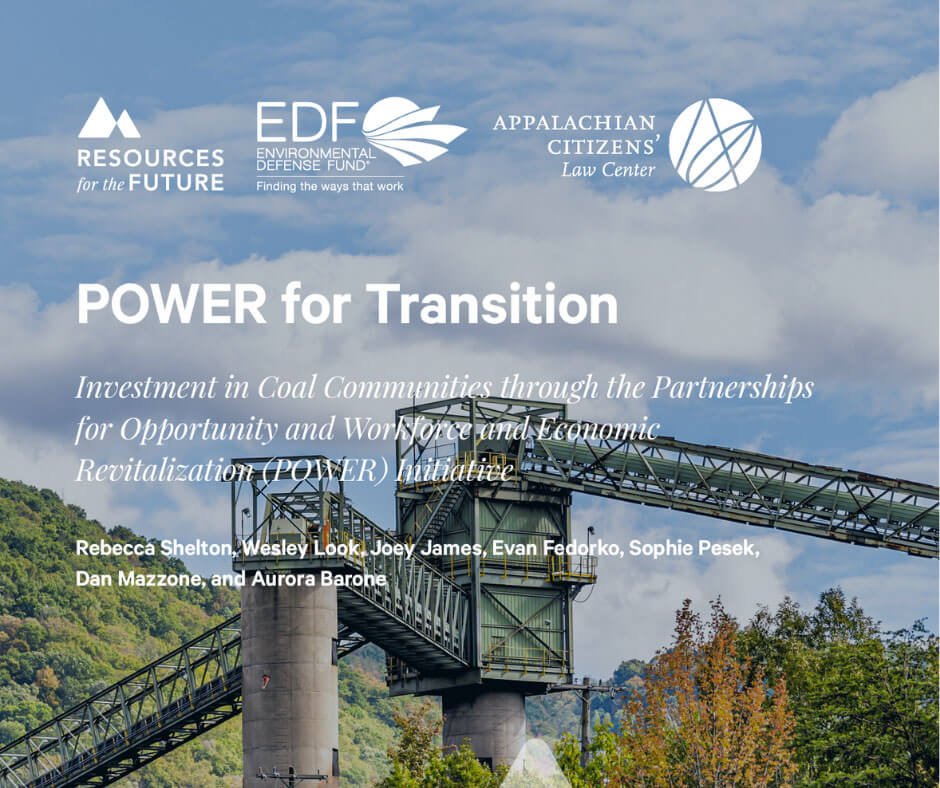
POWER for Transition: Investment in Coal Communities through the Partnerships for Opportunity and Workforce and Economic Revitalization (POWER) Initiative
This report examines implementation of the POWER Initiative, which assists communities hurt by declines in coal mining and coal-fired electricity generation. The lessons learned through this retrospective analysis can be used to guide current and future federal policymaking to revitalize the economies of coal communities.
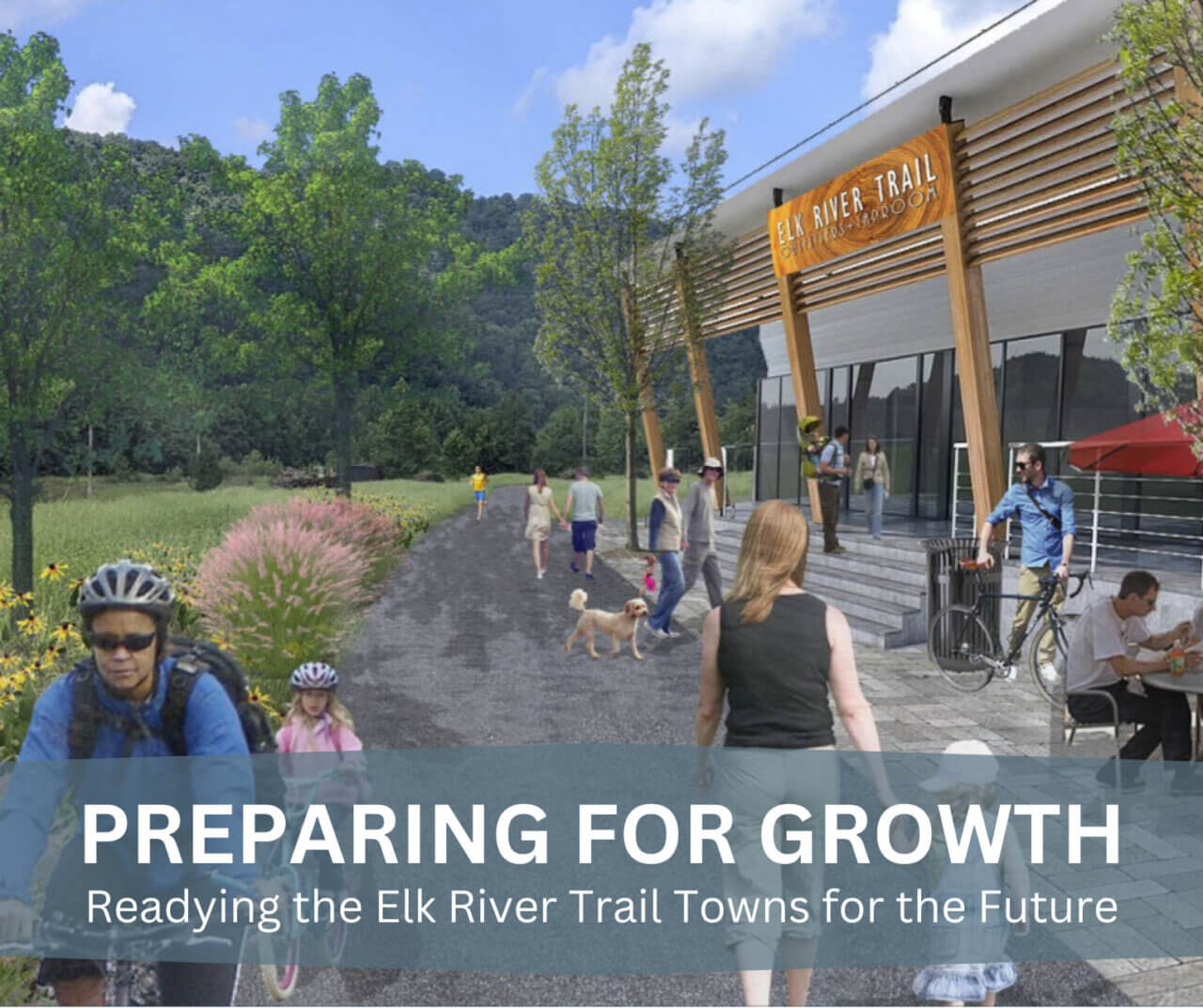
Preparing for Growth: Readying the Elk River Trail Towns for the Future
Recreation and tourism investments in Central West Virginia have centered around the establishment of the Elk River Trail System. To maximize its economic development power, communities must implement intentional strategies to accommodate an increased number of visitors. This report identifies strategies that would cost just over $4 million, but that could result in $250 million in new sales activity over the next 15 years in four Elk River Trail Towns.

Regional Trail Network Development
We work at the forefront of regional trail network development in West Virginia. Since 2019, we have partnered with Friends of the Cheat to spearhead efforts to develop the Mountaineer Trail Network and its governing body, the Mountaineer Trail Network Recreation Authority, from a concept into reality.
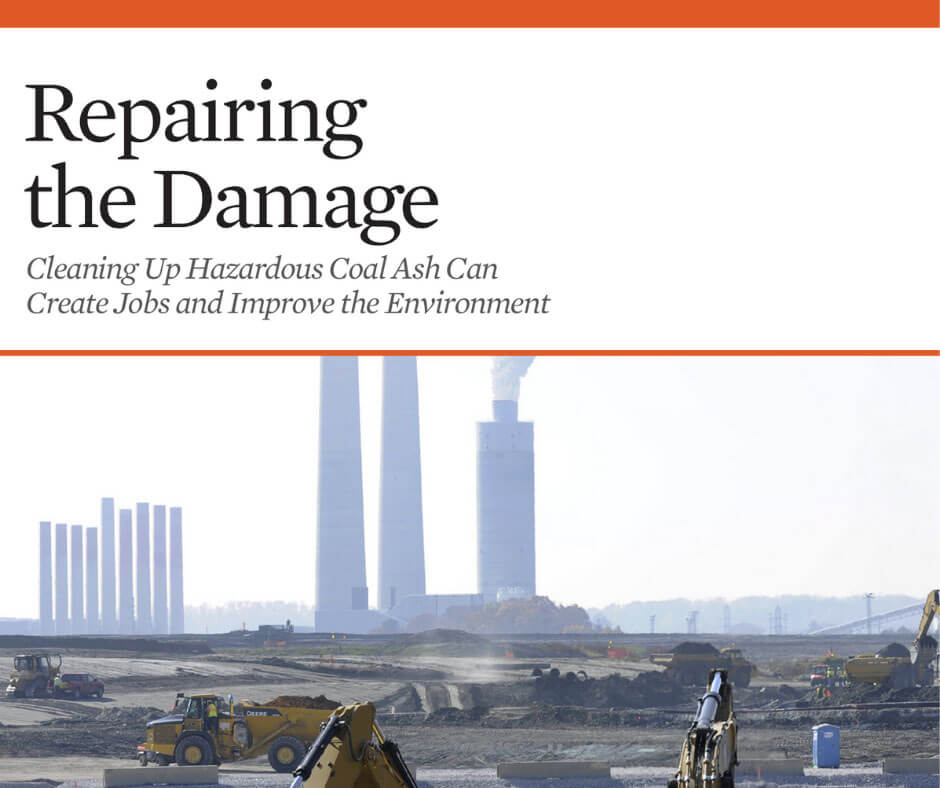
Repairing the Damage: Cleaning Up Hazardous Coal Ash Can Create Jobs and Protect the Environment
We performed economic impact analyses for the closure of coal ash sites in Kentucky and Ohio. Our results were included in a broader report documenting how cleaning up coal ash sites can create jobs and improve the environment.
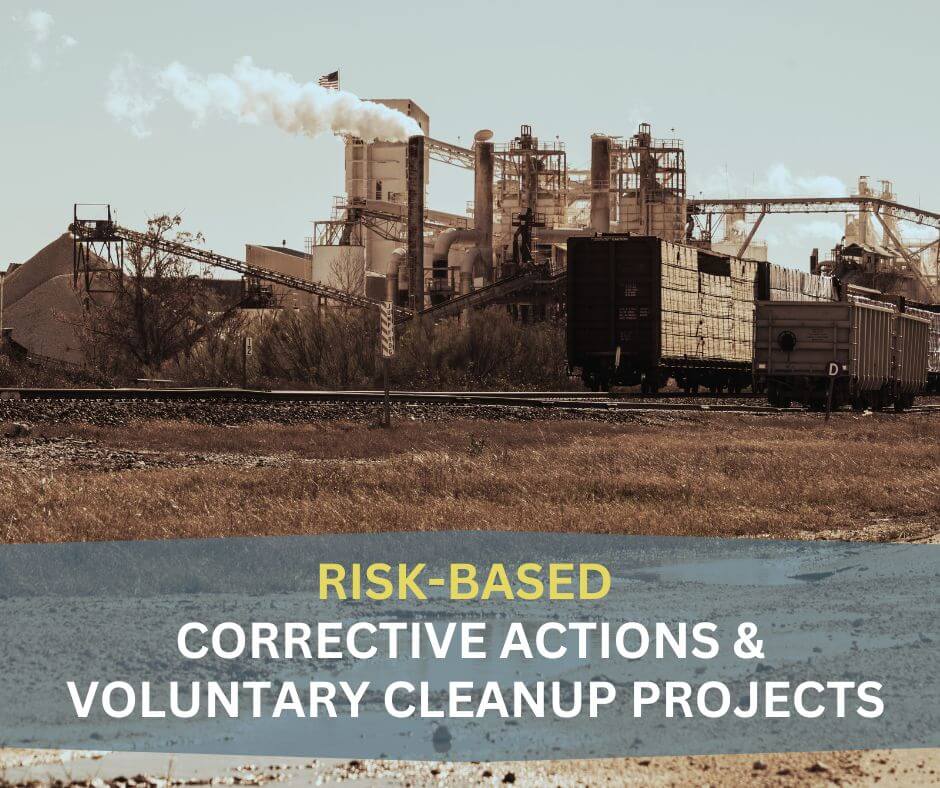
Risk-based Corrective Actions and Voluntary Cleanup Projects
We have provided private, commercial, and municipal clients with West Virginia Licensed Remediation Specialist (LRS) services under the West Virginia Department of Environmental Protection’s risk-based Voluntary Remediation Program. This work has included risk assessments, site characterizations, environmental sampling, remedial action work planning, and site closures.
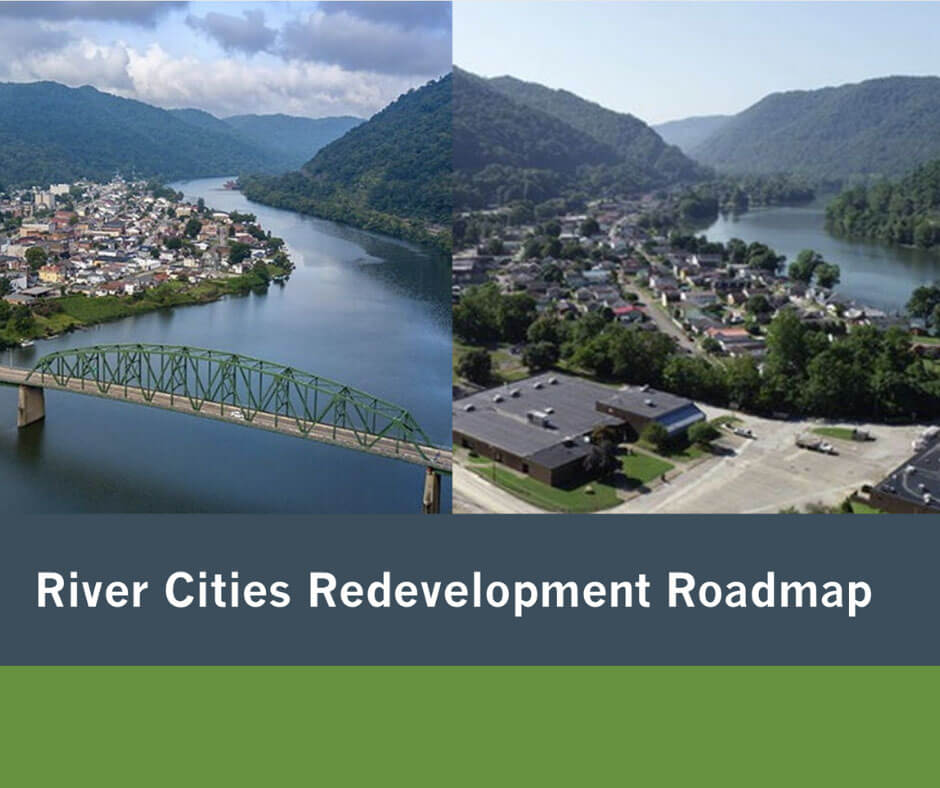
River Cities Redevelopment Roadmap
This report helps Smithers and Montgomery prepare to take advantage of new market opportunities in the outdoor economy. We identified businesses, services, and other amenities that will be needed to attract trail visitors to Montgomery and Smithers and offered guidance on jumpstarting the creation of targeted tourism-sector businesses. The report features detailed startup scenarios for two business opportunities, as well as a detailed checklist to guide local leaders in launching their nascent tourism economy.
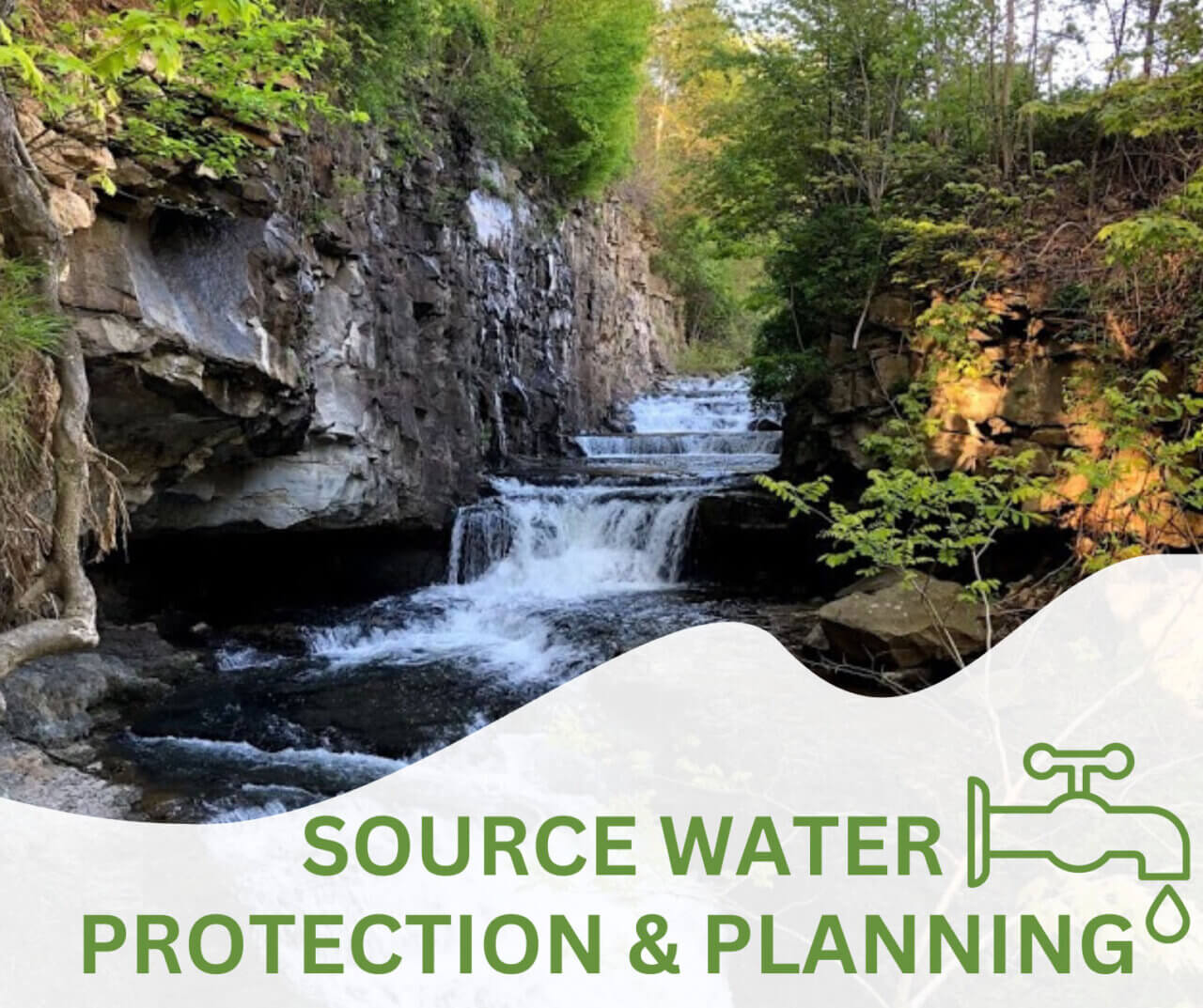
Source Water Protection and Planning
We have assisted many West Virginia municipalities with source water protection and planning, including small communities and larger cities such as Wheeling and Morgantown. We worked extensively with Morgantown Utility Board on their source water protection and planning initiatives since 2014.

Sprouting Farms
We conducted a feasibility study, developed the business plan, secured grant funding, and implemented the Sprouting Farms project. Sprouting Farms Appalachian Croft and Training Center is a nonprofit farm and education and resource center located in Summers County, West Virginia. It is dedicated to supporting new farmers, modeling sustainable production techniques, and providing shared resources and educational opportunities.
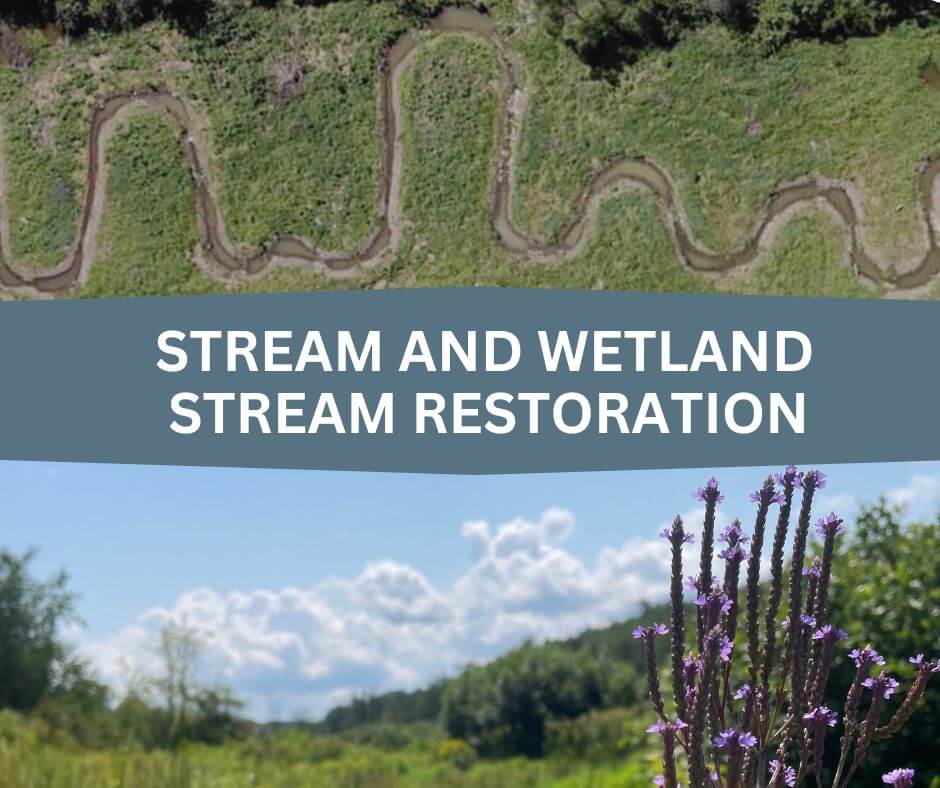
Stream and Wetland Restoration
At numerous sites across West Virginia, our team has designed and installed stream and wetland restoration projects using principles of natural stream design and wetland science. Our projects have restored miles of streams, improved instream and riparian habitat, reconnected floodplains, and improved opportunities for fishing, hiking, hunting, and wildlife viewing.

The Economic Benefits of Investing in Water Infrastructure: How a Failure to Act Would Affect the U.S. Economic Recovery
We performed research and analysis to estimate future drinking water and wastewater/stormwater capital and operations and maintenance needs and spending. We then calculated spending gaps for the nation’s water infrastructure and, with our partners, estimated the economic impacts should the federal government fail to reinvest in key infrastructure projects.
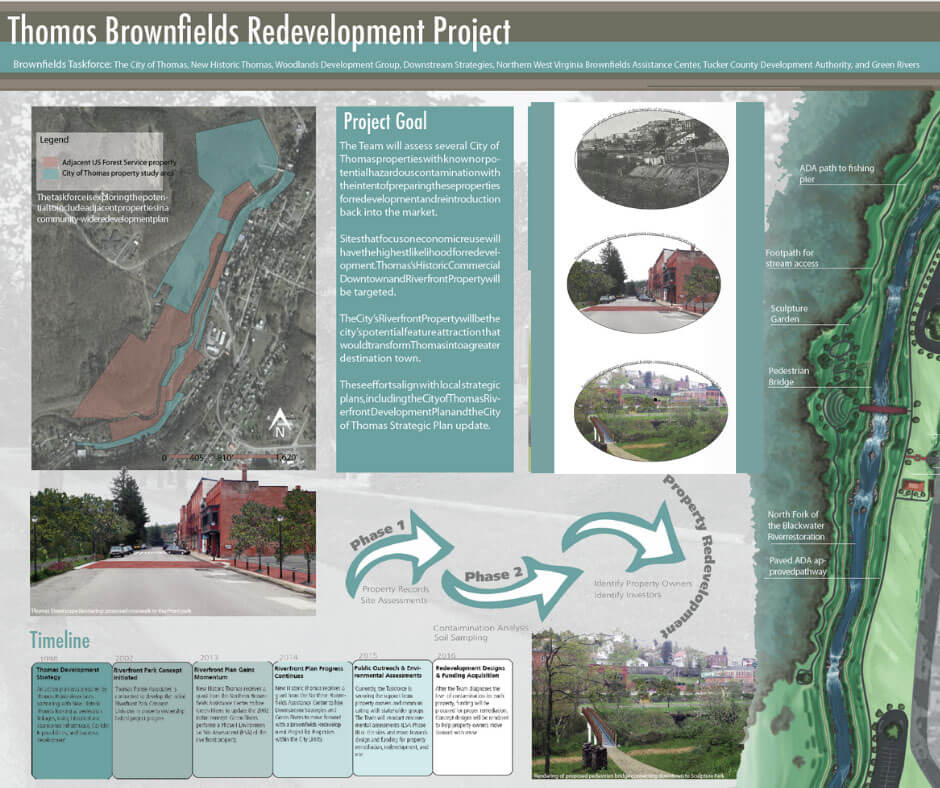
U.S. EPA Brownfield Assessment for Thomas, West Virginia
Downstream Strategies helped the City of Thomas, West Virginia secure Brownfields Assessment and Cleanup grants from the U.S. Environmental Protection Agency. We then worked with partners to perform a dozen Phase I Environmental Site Assessments and four Phase II Environmental Site Assessments to allow for the redevelopment of properties with known or potential contamination.

Understanding Mountain Bike Tourism: Strategies and Recommendations for Increasing Mountain Bike Tourism Opportunities in Richwood, West Virginia
We highlighted opportunities and marketing strategies to help Richwood capitalize on mountain bike tourism. The report included a profile of the mountain bike user group; an overview of existing trail resources in Richwood, nearby mountain biking destinations, and upcoming opportunities to expand mountain biking in the region; recommendations to help business owners market to mountain bikers; and examples of other rural communities that have used mountain biking to spur local economic development.
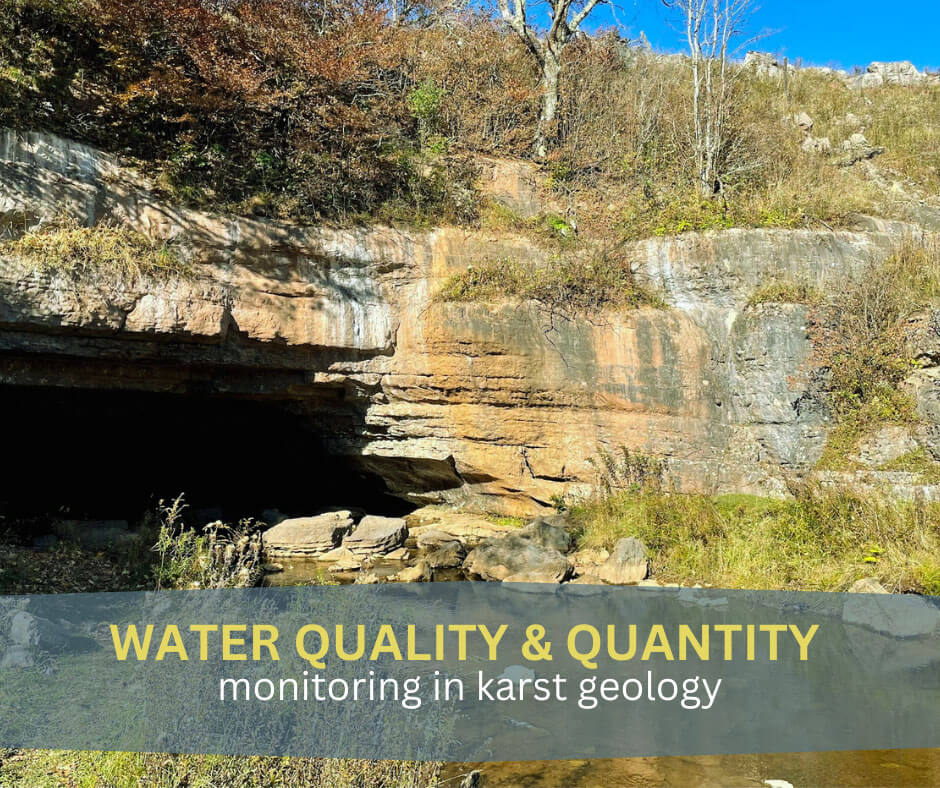
Water Quality and Quantity Monitoring in Karst
Our team supported a local community organization by developing a water quantity and quality monitoring program to establish pre-mining conditions and to help document long-term trends in a karst region of West Virginia.
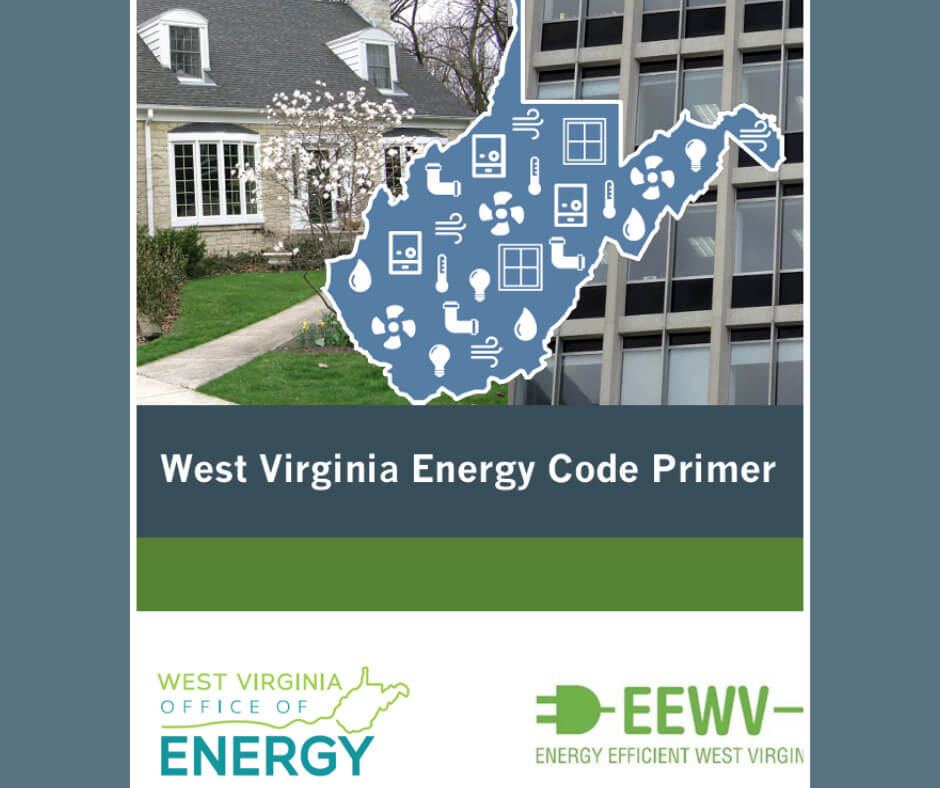
West Virginia Energy Code Primer
Only a handful of West Virginia cities and counties have adopted and enforce the most recent energy codes, which reduce energy use with requirements related to heating and air conditioning systems, ventilation, insulation, windows, and lighting. In this report, we document how energy codes promote good building practices, safeguard the health of occupants and buildings, and can save West Virginians thousands of dollars.
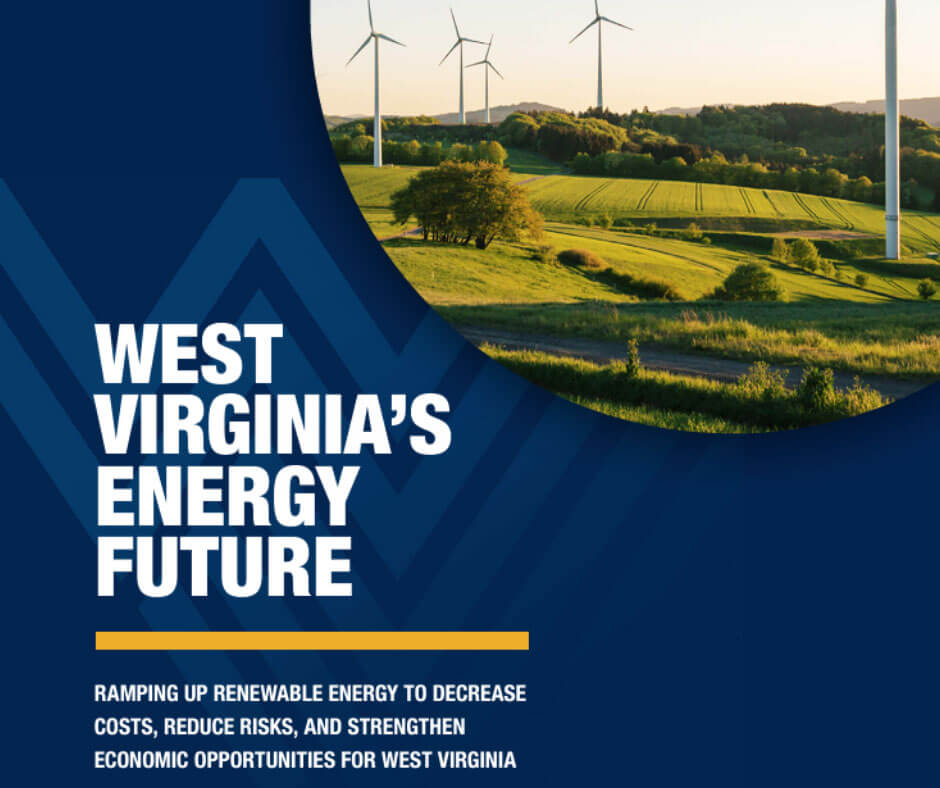
West Virginia’s Energy Future: Ramping Up Renewable Energy to Decrease Costs, Reduce Risks, and Strengthen Economic Opportunities for West Virginia
In this report, we compare the current trajectory of West Virginia’s electric utilities—estimated to maintain 84% coal-fired generation in 2035—against an alternative future that includes more energy efficiency, solar energy, and wind energy. We document several of the benefits that a diversified energy portfolio would bring to ratepayers, workers, and the West Virginia economy.
